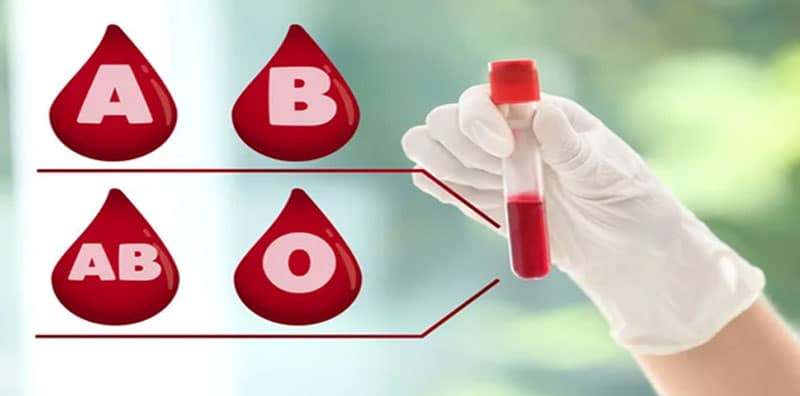Human blood comes in a variety of types, each with its own unique characteristics. In total, there are eight distinct blood types: A+, A-, B+, B-, O+, O-, AB+, and AB-. But what do these blood types signify, and how can they impact your health? In this blog, we’ll delve into the fundamentals of blood types, explore the significance of the Rh factor, and demystify terms like “universal donor.”
Blood Type Basics

Your blood is composed of two primary components: cells (the solids) and plasma (the liquids). When it comes to blood typing, we focus on the solid part of your blood, specifically the red blood cells.
Your blood type is determined by the presence of antigens, which are proteins that trigger an immune response, on the surface of red blood cells. Red blood cells can carry antigens of type A, type B, both A and B, or none at all. This leads to four main blood type categories:
- Type A blood: Red cells carry the A antigen.
- Type B blood: Red cells carry the B antigen.
- Type AB blood: Red cells carry both A and B antigens
- Type O blood: Red cells lack both A and B antigens.
Rh factor: The Positive and Negative of Blood Typing

Once your blood type is determined, further testing can reveal the presence of the Rhesus factor, or Rh factor, in your blood. If your blood contains the Rh factor, your blood type is considered positive. If it lacks the Rh factor, it’s labeled as negative.
The majority of people are Rh-positive, which means they have a positive blood type. In total, there are eight possible blood type combinations, including A+, A-, B+, B-, AB+, AB-, O+, and O-.
Here’s a breakdown of their prevalence:
- Type A+: Approximately one-third of Americans have this blood type.
- Type A-: Fewer than 10% of Americans possess this blood type.
- Type B+: Roughly 15% of the population has B+ blood.
- Type B-: Only about 1% of people have B- blood.
- Type AB+: Around 4% of the population has AB+ blood, and they are considered “universal recipients” because they can safely receive any of the eight blood types.
- Type AB-: The rarest of all blood types, with fewer than 0.5% of individuals having it.
- Type O+: The most common type, with nearly half of all Americans being O+.
- Type O-: Only about 4% of the population has O- blood, and they are considered “universal donors” because O- blood can be given to anyone.
Why Blood Type Matters

Knowing your blood type is crucial in case you ever require a blood transfusion. While doctors will always check your type before a transfusion, being aware of it can help ensure you receive the correct type, as receiving the wrong blood type can trigger an immune system response, potentially destroying the infused red cells.
In addition to antigens on red cells, your blood may contain antibodies in the plasma that attack foreign blood antigens. For example, individuals with Type A blood not only have A antigens on their red cells but also B antibodies in their plasma. These B antibodies can destroy red blood cells from a Type B blood transfusion, leading to a severe immune system reaction.
Blood banks are always in need of diverse blood types to meet the needs of various patients. People with O- blood are particularly valuable as “universal donors” because their blood lacks A and B antigens as well as the Rh factor, making it compatible with nearly anyone.
It’s also essential for individuals with rare blood types, such as B-, AB+, and AB-, to donate blood to ensure others with the same blood types can receive suitable transfusions.
Pregnancy and the Rh Factor

Another critical reason to know your blood type is to ensure a healthy pregnancy. Rh incompatibility can arise if a pregnant woman has a different Rh factor than her fetus, potentially causing serious health issues. If the fetus is Rh+ and the mother is Rh-, her immune system may attack the Rh+ cells in the fetus’s blood, which can lead to severe illness or even death for either the mother or the baby.
Fortunately, Rh- women can receive medication to prevent their immune system from targeting Rh+ cells, ensuring the well-being of both mother and child.
Knowing your blood type may initially seem like trivia, but it holds vital importance for your safety during potential transfusions and for a healthy pregnancy. You can easily discover your blood type by donating blood, making it a simple step toward safeguarding your health.
In conclusion, understanding your blood type is not only a fascinating aspect of your biology but also a matter of utmost importance for your health and well-being. Whether you ever require a blood transfusion or are planning a pregnancy, having this knowledge can make a significant difference in your safety and the safety of your loved ones.
To schedule an in person on Tele-medicine appointment
please call our office at 1-212-794-8800 or email us at info@patientsmedical.com. We look forward to hearing from you
Our medical center in New York City.
Patients Medical PC 1148 Fifth Avenue, Suite 1B
New York, NY 10128
About Patients Medical
 PatientsMedical.com is headed by Dr. Rashmi Gulati, MD who is a board-certified physician with over 20 years of integrative, functional and internal medicine experience.
PatientsMedical.com is headed by Dr. Rashmi Gulati, MD who is a board-certified physician with over 20 years of integrative, functional and internal medicine experience.Patients Medical is a holistic wellness center dedicated to helping its clients discover health and rediscover vitality. Their physicians combine the best of conventional and holistic medicine with state-of-the-art equipment to provide comprehensive care and treatment to their patients. They focus on the root causes of secondary medical conditions, integrating modern medicine, holistic practices, and natural supplements to fast-track healing and prevent disease. Every year, thousands of existing and new patients continue to visit the center, seeking an alternative medical approach to a variety of health issues.
Patients Medical provides extensive weight loss support. For details see: Patientsmed, Mounjaro Weight Loss, Ozempic Weight Loss , Semaglutide For Weight Loss/, and Wegovy Weight Loss Patients Medical provides extensive reproductive medicine support through its affiliates. For details see: Surrogacy4All , Eggdonors4All and Indian Egg Donor .
In addition, Patients Medical provides access to over 15,000 affordable supplements on their affiliated website: MySupplements.store

Rashmi Gulati, MD, provides innovative, individualized health care that nurtures mind, body, and spirit. Since 2004 she has been the medical director at Patients Medical, where she delivers comprehensive personalized health care, treating each patient as a respected, unique individual. Through their integrative health care center in the heart of Manhattan, Dr. Gulati and her colleagues have become premier care providers serving patients locally and throughout the world.
About Patients Medical
PatientsMedical.com is headed by Rashmi Gulati, MD who is a board-certified physician with over 20 years of integrative, functional and internal medicine experience.
Patients Medical is a holistic wellness center dedicated to helping its clients discover health and rediscover vitality. Their physicians combine the best of conventional and holistic medicine with state-of-the-art equipment to provide comprehensive care and treatment to their patients. They focus on the root causes of secondary medical conditions, integrating modern medicine, holistic practices, and natural supplements to fast-track healing and prevent disease. Every year, thousands of existing and new patients continue to visit the center, seeking an alternative medical approach to a variety of health issues.
In addition, Patients Medical provides access to over 15,000 affordable supplements on their affiliated website: www.MySupplements.Store
Our medical center in New York City.
Patients Medical PC
1148 Fifth Avenue, Suite 1B
New York, NY 10128

